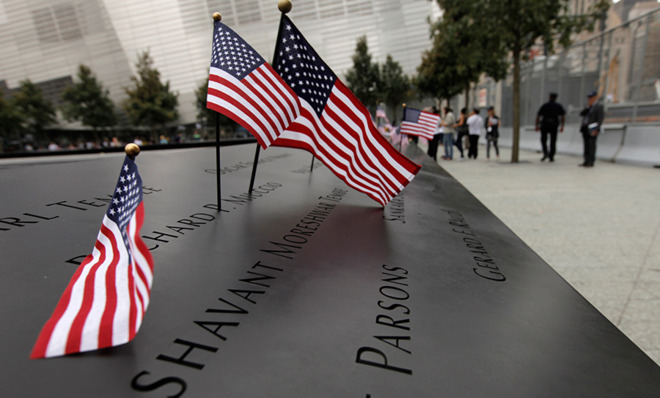How we went to the Dark Side
Terrorists invite us to join them in madness, and after 9/11, America took the bait


A free daily email with the biggest news stories of the day – and the best features from TheWeek.com
You are now subscribed
Your newsletter sign-up was successful
On 9/11, I watched the towers collapse into a billowing volcanic cloud from The Week's offices, and vividly remember the terror that subsequently seized the city and the country. It was widely believed that it was just the first of many attacks — with planes, dirty bombs, nuclear weapons. Police and National Guardsmen armed for warfare filled train stations, airports, and public places. Airline traffic plummeted. When the anthrax letters began arriving, frantic mothers bought up gas masks and antibiotics for the inevitable biowarfare attack, and families began stocking up on food, water, and duct tape. America lost its collective mind. It was amid this mass hysteria that the Bush administration crossed a line that the U.S. had never before crossed, not even in fighting Hitler's Germany. In order to deliver us from evil, our intelligence agencies tortured people with a persistent, sadistic brutality that, we know now, left even CIA officers nauseated, shaking, and crying.
(Read insightful commentary from our editors every week: Try 4 risk-free issues of The Week magazine.)
This is terrorism's sick genius. Terrorists invite us — seduce us — to share their Manichaean worldview, to respond to savagery with savagery, to join them in madness. "Make us safe!" Americans demanded. And so our elected leaders launched two wars, saw WMD where there were none, launched surveillance programs with virtually no limits, and embraced "enhanced interrogation." As justification, the White House and the CIA joined Machiavelli, Marx, and Stalin in insisting that the end justifies the means. Lots of individuals bear responsibility for the horrors detailed in the Senate committee’s torture report. But if we are honest, that journey to the Dark Side was a collective failure — and sobering evidence of how fragile our principles really are.
The Week
Escape your echo chamber. Get the facts behind the news, plus analysis from multiple perspectives.

Sign up for The Week's Free Newsletters
From our morning news briefing to a weekly Good News Newsletter, get the best of The Week delivered directly to your inbox.
From our morning news briefing to a weekly Good News Newsletter, get the best of The Week delivered directly to your inbox.
A free daily email with the biggest news stories of the day – and the best features from TheWeek.com
William Falk is editor-in-chief of The Week, and has held that role since the magazine's first issue in 2001. He has previously been a reporter, columnist, and editor at the Gannett Westchester Newspapers and at Newsday, where he was part of two reporting teams that won Pulitzer Prizes.
-
 What are the best investments for beginners?
What are the best investments for beginners?The Explainer Stocks and ETFs and bonds, oh my
-
 What to know before filing your own taxes for the first time
What to know before filing your own taxes for the first timethe explainer Tackle this financial milestone with confidence
-
 The biggest box office flops of the 21st century
The biggest box office flops of the 21st centuryin depth Unnecessary remakes and turgid, expensive CGI-fests highlight this list of these most notorious box-office losers
